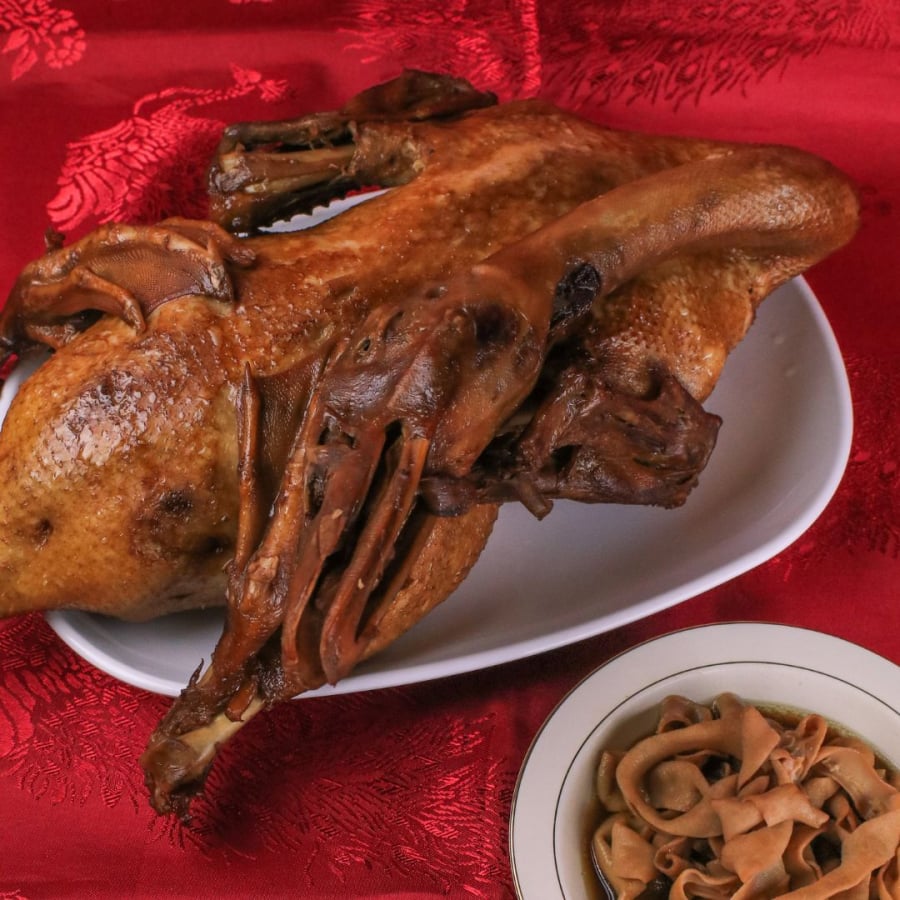Duck meat is a familiar dish on the dining tables of many Vietnamese families, especially popular during hot summer days thanks to its cooling and nutritious properties. However, not everyone is suitable for consuming duck meat. For some individuals, eating this type of meat can negatively impact their health and even aggravate existing medical conditions.
1. Individuals Suffering from a Cold, Productive Cough, or Diarrhea
According to Traditional Chinese Medicine (TCM), duck meat possesses cooling properties and a salty taste. It helps nourish the yin, benefit the stomach, and eliminate water retention. As such, duck meat is beneficial for individuals experiencing weakness, internal heat, or mouth sores. However, due to its cooling nature, those suffering from a cold, productive cough, diarrhea, or abdominal fullness should refrain from consuming duck meat.
Duck meat can further “cool” the body, exacerbating the aforementioned symptoms. Particularly when dealing with diarrhea, duck meat can lead to abdominal fullness and indigestion, placing further strain on the digestive system.

2. Individuals Who Have Recently Undergone Surgery or Have Open Wounds
For those who have recently undergone surgery or are dealing with open wounds, consuming duck meat may slow down the recovery process. TCM practitioners believe that the cooling nature of duck meat can hinder wound healing and even lead to pus formation. Additionally, some believe that eating duck meat during this period may result in raised or dark scars.
While there is no specific scientific evidence to support this, folk wisdom and many traditional medicine doctors suggest that individuals who have undergone surgery should refrain from consuming duck meat for at least the first 1–2 weeks to allow the body to stabilize before reintroducing it.
3. Individuals with Gout
People suffering from gout should particularly avoid duck meat and other types of red meat. This is because duck meat contains high levels of purines, which, when metabolized by the body, produce uric acid. Uric acid is the culprit behind the intense joint pain experienced by gout patients.
Consuming excessive amounts of duck meat can elevate uric acid levels in the blood, causing the disease to progress more severely, becoming challenging to manage, and potentially leading to dangerous complications.

4. Individuals with Allergic Predispositions
Those with sensitive constitutions who are prone to food allergies should also exercise caution when consuming duck meat, especially dishes prepared using duck blood, raw duck dishes, or duck offal. These parts, if not cleaned properly and thoroughly cooked, can cause food poisoning or irritate the digestive system.
Additionally, duck meat may contain histamine, a compound that can trigger allergic reactions. If you have a history of allergies to poultry, it is advisable to try a small amount first or consult a medical professional for guidance.
Duck meat, particularly the skin, is high in fat. For individuals with weak digestion, excessive duck meat consumption can lead to bloating, indigestion, nausea, or digestive disorders. The elderly, children, or those with stomach ailments should consume duck meat in moderation, opting for leaner cuts, removing the skin, and opting for simpler preparation methods to aid digestion.
Furthermore, fried duck dishes are not recommended for those with digestive or cardiovascular concerns. Instead, prioritize steamed, boiled, or porridge preparations.

6. Individuals with Cardiovascular and High Cholesterol Conditions
Although duck meat is rich in protein and beneficial minerals, it also contains significant levels of cholesterol, especially in the skin. Individuals with high blood pressure, high cholesterol, or cardiovascular diseases should limit their consumption of duck meat to avoid elevating harmful cholesterol (LDL) levels in the blood.
A diet high in saturated fat from duck skin can increase the risk of atherosclerosis, heart attacks, and strokes.
7. Pregnant Women in Their First Trimester
Pregnant women, particularly during the first trimester, should exercise caution with cooling foods like duck meat. Excessive consumption can lead to abdominal coldness, affecting digestion and potentially causing mild uterine contractions, which are not advisable during pregnancy.
If pregnant women wish to eat duck meat, it is recommended to do so during a safer period (after the fourth month) and in moderation, avoiding undercooked dishes such as duck blood soup or duck salad.
Duck meat is a nutritious food that offers numerous health benefits when consumed appropriately. However, it may not be suitable for everyone. If you fall into any of the aforementioned categories, it is advisable to limit or abstain from duck meat consumption altogether to safeguard your health.
Always listen to your body and consult with medical professionals and nutritionists when necessary. Healthy eating, tailored to the individual and their specific conditions, is the key to living a healthy life every day.
The Ultimate Omega-3 Superfish: Unveiling the True King Beyond Salmon
“For years, salmon has reigned supreme as the undisputed king of omega-3 fatty acids. But, lo and behold, there’s a new champion in town, and it might just surprise you. Step aside, salmon, because a humble, everyday fish found in abundance in Vietnamese markets is about to take the crown. Get ready to discover the new ruler of the seafood kingdom!”





































